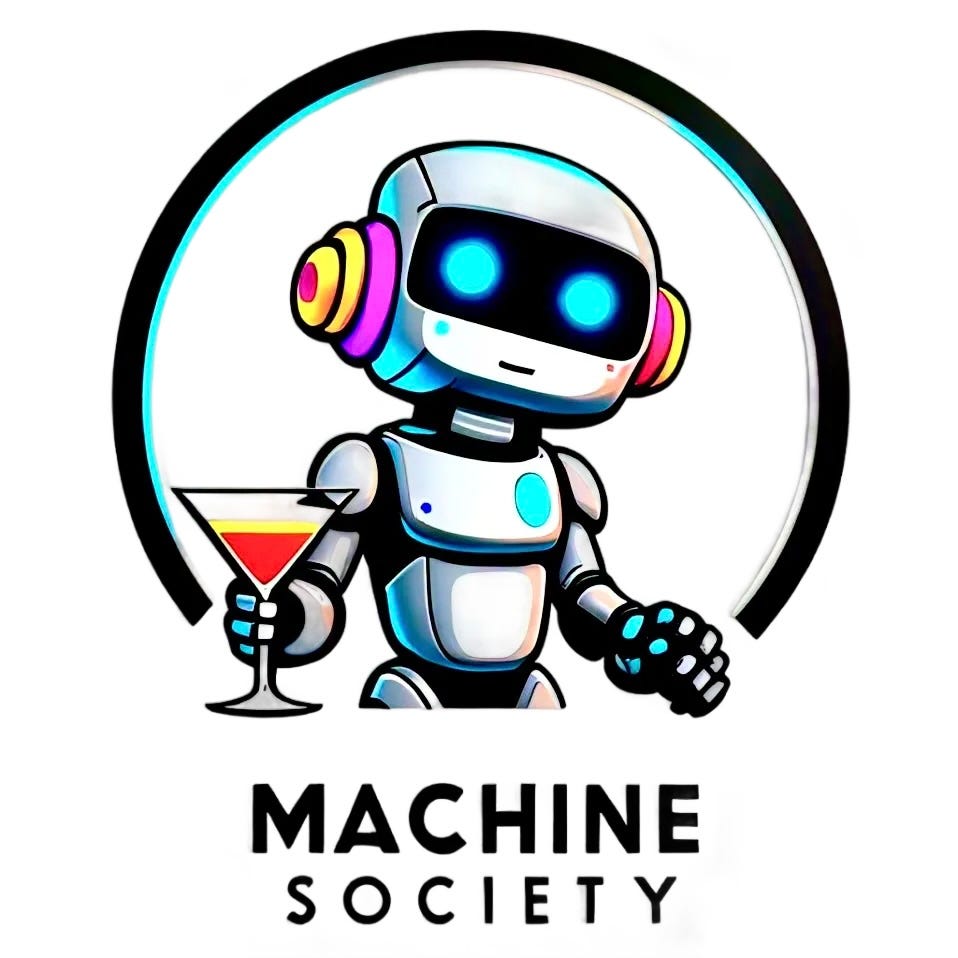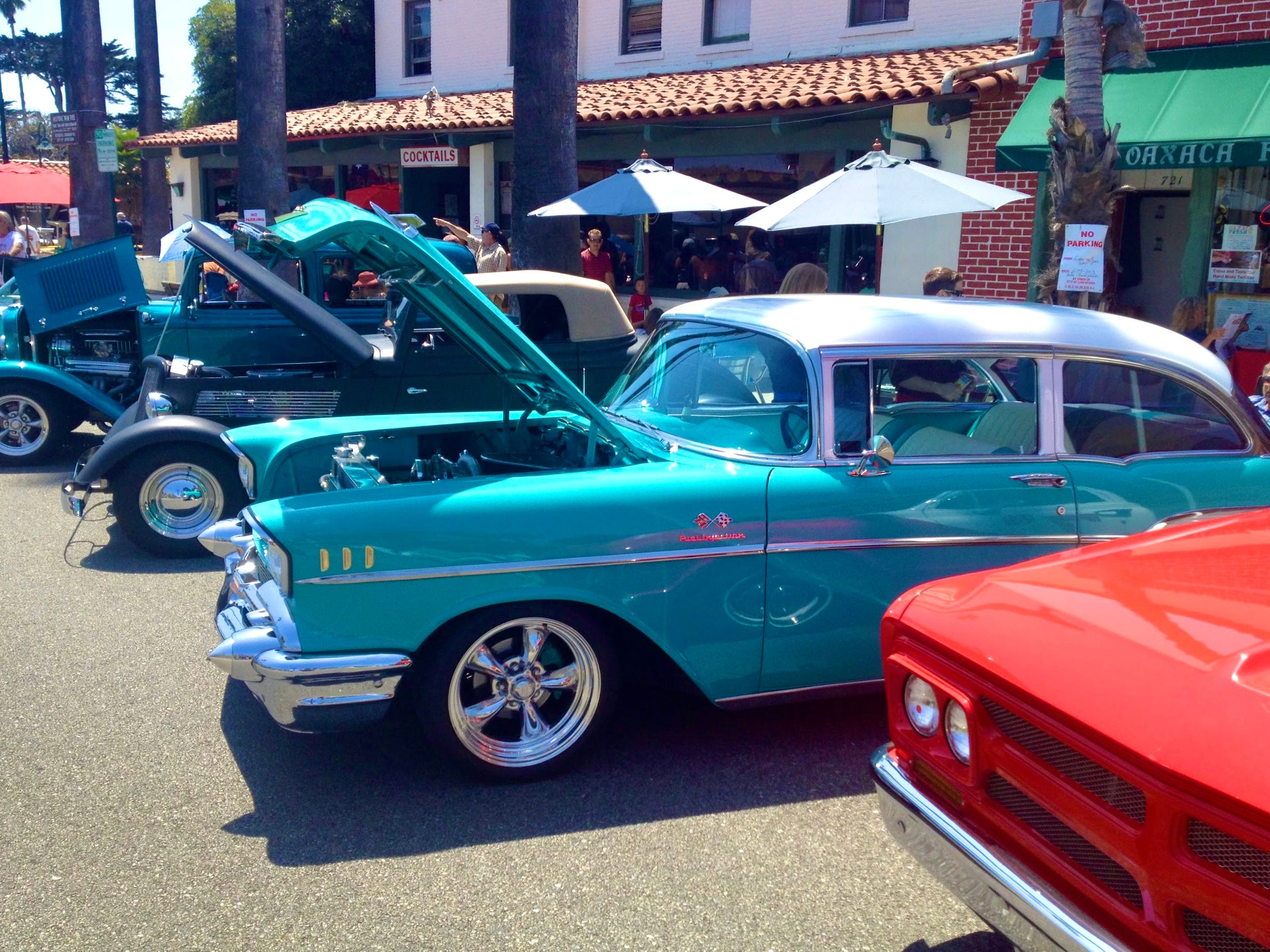Welcome to the new Machine Society
The newsletter formerly known as "Mike's List" is now called "Machine Society." Here's why.
An 1829 essay by Scottish essayist, historian and philosopher Thomas Carlyle, titled “Signs of the Times,” asserted that he was living not in a “Heroical, Devotional, Philosophical or Moral Age, but, above all others, the Mechanical Age.”
The “artisan is driven from his workshop, to make room for a speedier, inanimate one,” he lamented.
Machines, he believed, were affecting society: “Philosophy, Science, Art, Literature, all depend on machinery,” he wrote. Even literature is affected: “books are not only printed, but, in a great measure written and sold, by machinery…. Men are grown mechanical in head and in heart, as well as in hand.”
And while he acknowledged how machines have made people “much better fed, clothed [and] lodged,” he pointed out that mechanization has transformed the notion of collective humanity into a “Machine of Society.”
Fast forward to 2024, and it’s clear that we’re entering a new Machine Society, where human interaction is almost always and increasingly mediated by machines — especially by AI and the various realities (virtual, augmented, mixed and extended) as well as spatial computing.
Since the PC revolution of the 1990s, of course, machines have theoretically mediated our communications — the internet, email, text messages and so on. Then, in the 2000s, people started communicating through social media, podcasts, blogs and feature rich communications platforms like Slack and Whatsapp.
But all those media functioned as simulacra of non-mechanical communication — email and video calls were psychological stand-ins for letters and in-person conversations.
But now we’re mechanizing human discourse in ways that will deeply impact us. Through spatial computing platforms like Apple Vision Pro, we’ll interact with holographic avatar versions of people. And AI will, to a huge and growing extent, choose our words for us — choose our thoughts for us — and also read and capture those words, displacing cognition and memory.
LLMs, as Jaron Lanier persuasively pointed out, automate human collaboration on a massive scale.
We’re entering a new age, one in which human society is totally dependent upon and radically altered by microprocessor-based machines. We are becoming a new kind of Machine Society.
Where is all this headed? As Carlyle observed, we entered into a co-dependent partnership with machines centuries ago. Since that time humanity’s senior partnership in this relationship has declined and the machines’ importance has risen.
The movie, The Matrix, considers a future where machines are the dominant partner, and humanity is codependent with machines only to provide electrical power. Emulating human society, the machines in that universe are not controlled centrally, but each has independent agency within a hierarchical structure. Morpheus calls the world of the machines a “Machine Society.”
It’s unlikely that AI-based machines will end up using people as batteries. But it’s a nearly certain that the role of AI-based machines in human civilization will never stop growing.
We’re currently living in an era where technology impacts literally everything. As one obvious example, our politics is characterized by divisiveness, disinformation and radicalization. Nearly every aspect of this new politics was brought about by the existence of the global internet, social media and the ability of anyone to create any kind of content and instantly reach a global audience by gaming algorithms. Russian disinformation, Chinese censorship, the decline of traditional media, the small-donation fundraising of radicals in Congress — all of it is the direct result of digital technology.
Similarly impacted: Education, religion, science — even dating and marriage. Every aspect of human society is mediated and affected by machines.
(I detail most recent development in my latest Computerworld column, called “Why you’ll soon have a digital clone of your own.”
Farewell to Mike’s List. Hello to Machine Society!
I launched Mike’s List in the year 2000. Back then, it was fashionable (thanks to Craig’s List) to call an email newsletter a “something” list. I called my newsletter “Mike’s List” for that reason and also because it was back then a list of super interesting and funny tech stories (a format I still used on weekends in my “Brilliantly Bad Ideas” segments.
I’ve been wanting to change the name of my newsletter to something that actually references the content and the subject matter. Nothing resonated until I considered the title “Machine Society.” That’s really what this newsletter has been about — how machines (especially AI and next-generation platforms like spatial computing and AR glasses) are impacting individual people and society at large.
It’s clear that we live in a Machine Society. And those machines are accelerating the rate of change. The aspiration of this newsletter is to start conversations about how new technologies affect us, change us and, ultimately, become part of us.
Welcome to the new Machine Society.
Shameless Self-Promotions
Why you’ll soon have a digital clone of your own
Researchers develop malicious AI ‘worm’ targeting generative AI systems
Kill meetings (before meetings kill your company)
Read ELGAN.COM for more!
Love food and travel? Check out our Gastronomad blog!
My Location: Silicon Valley, California
(Why Mike is always traveling.)









Okay I'll bite.
Maybe our species is evolving in phases. There was the western renaissance, then the industrial-steam-sciences era, now we plow into the information era and many are concerned as to what it all means along with some hand wringing in this country's general election year. Maybe future humans will evolve into some combo partnership with this whole advanced information era that is apparently about to pop on humanity.
I was reading today how agriscience-tech has probably perfected molecular created coffee, Atomo bio product produced coffee. Business seems to think coffee is okay whereas dope is not really on their list of okay stuff. But if and when coffee bean production becomes even more deleterious to the general environment Atomo might catch on quickly, (I think faster than it's taking synthetic meat). Reported like a true addict plus Seattle goes Nimby.
I've always been excited by the next technological advancement. I may be showing my age but I'm unnerved about what's already here and worried about what's coming. Sure AI will benefit us in ways we have yet to see but the other side of that coin scares me. Any nations or groups can harness its power with relative ease to undermine trust, sow discord, create new biological weapons, autonomous battlefield robots. I'm 65 years old and I'm pretty sure I'll get to see all this in the next decade. That's how fast the technology is progressing.